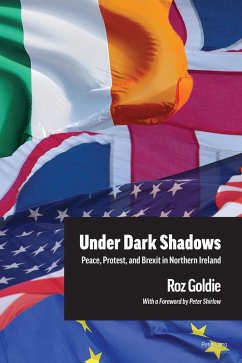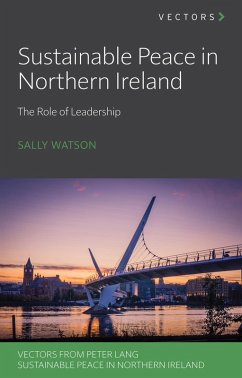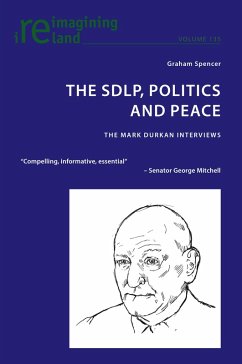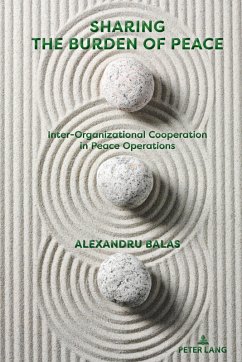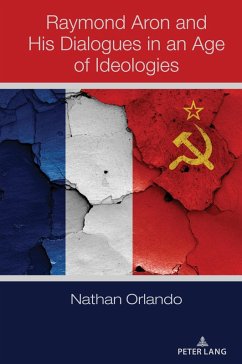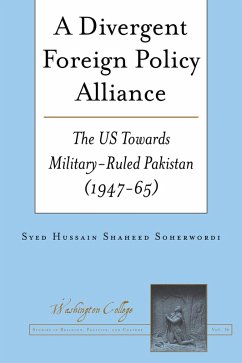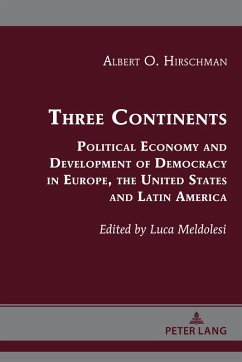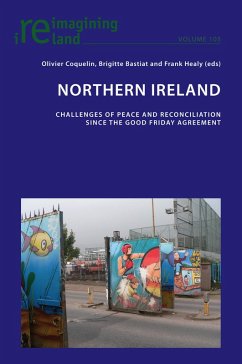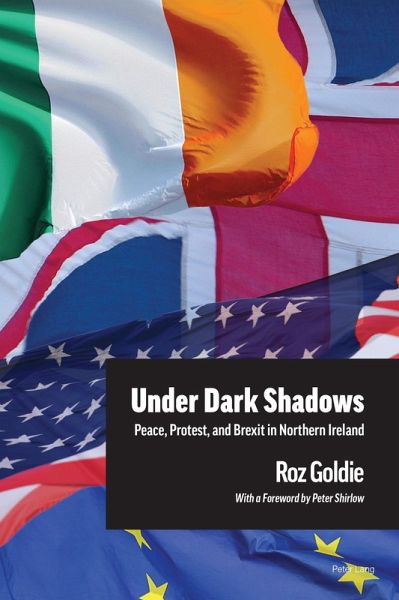
Under Dark Shadows (eBook, PDF)
Peace, Protest, and Brexit in Northern Ireland
Versandkostenfrei!
Sofort per Download lieferbar
Statt: 46,95 €**
39,95 €
inkl. MwSt.
**Preis der gedruckten Ausgabe (Broschiertes Buch)
Alle Infos zum eBook verschenkenWeitere Ausgaben:

PAYBACK Punkte
20 °P sammeln!
«An original, personal, powerful book. Anyone interested in contemporary Northern Ireland will gain much from reading it.»(Richard English, Professor of Politics and Director, Senator George J. Mitchell Institute for Global Peace, Security and Justice, Queen's University Belfast)«Goldie provides us with a theoretically informed and empirically rich analysis of the fragile dynamics of post-conflict in Northern Ireland. Looking «away from the clean streets and shining glass» she reveals the deep and dark complexity of transitional processes but clearly maps out the need to bring politics, v...
«An original, personal, powerful book. Anyone interested in contemporary Northern Ireland will gain much from reading it.»
(Richard English, Professor of Politics and Director, Senator George J. Mitchell Institute for Global Peace, Security and Justice, Queen's University Belfast)
«Goldie provides us with a theoretically informed and empirically rich analysis of the fragile dynamics of post-conflict in Northern Ireland. Looking «away from the clean streets and shining glass» she reveals the deep and dark complexity of transitional processes but clearly maps out the need to bring politics, violence, communities and policy into relation in building a more durable and inclusive peace.»
(Brendan Murtagh, Professor of Urban Planning, Queen's University Belfast)
Rioting at Belfast interfaces in 2021 sparked fears of renewed conflict. A tour around these contested places some days later raised fundamental questions about the peace process. Why was violence still erupting here? Weren't sectarian interfaces supposed to have gone with the reforms in governance and legal changes enshrined in the Belfast Agreement? The untidy truth about urban development, continuous violent protest and paramilitary activity sits uncomfortably alongside orchestrated protests against the Irish sea border, the legacy of conflict, the abuse of flags and emblems, slow reform of public administration and lack of political leadership necessary to peace-building. This book provides an extensive history of key components of the Northern Ireland peace process, possible answers to long standing vexed questions and some light under dark shadows.
(Richard English, Professor of Politics and Director, Senator George J. Mitchell Institute for Global Peace, Security and Justice, Queen's University Belfast)
«Goldie provides us with a theoretically informed and empirically rich analysis of the fragile dynamics of post-conflict in Northern Ireland. Looking «away from the clean streets and shining glass» she reveals the deep and dark complexity of transitional processes but clearly maps out the need to bring politics, violence, communities and policy into relation in building a more durable and inclusive peace.»
(Brendan Murtagh, Professor of Urban Planning, Queen's University Belfast)
Rioting at Belfast interfaces in 2021 sparked fears of renewed conflict. A tour around these contested places some days later raised fundamental questions about the peace process. Why was violence still erupting here? Weren't sectarian interfaces supposed to have gone with the reforms in governance and legal changes enshrined in the Belfast Agreement? The untidy truth about urban development, continuous violent protest and paramilitary activity sits uncomfortably alongside orchestrated protests against the Irish sea border, the legacy of conflict, the abuse of flags and emblems, slow reform of public administration and lack of political leadership necessary to peace-building. This book provides an extensive history of key components of the Northern Ireland peace process, possible answers to long standing vexed questions and some light under dark shadows.
Dieser Download kann aus rechtlichen Gründen nur mit Rechnungsadresse in A, D ausgeliefert werden.




